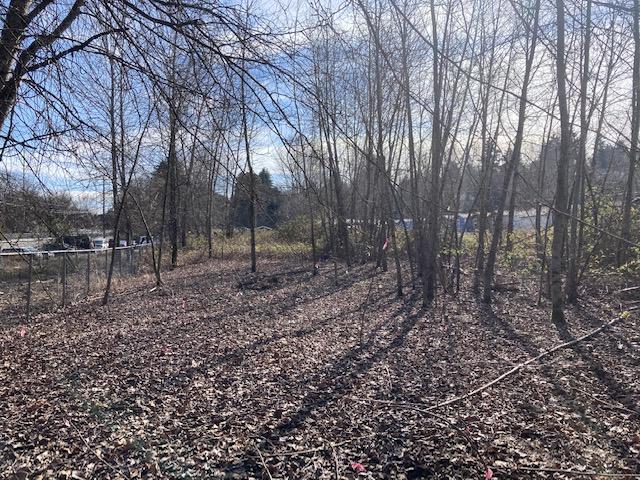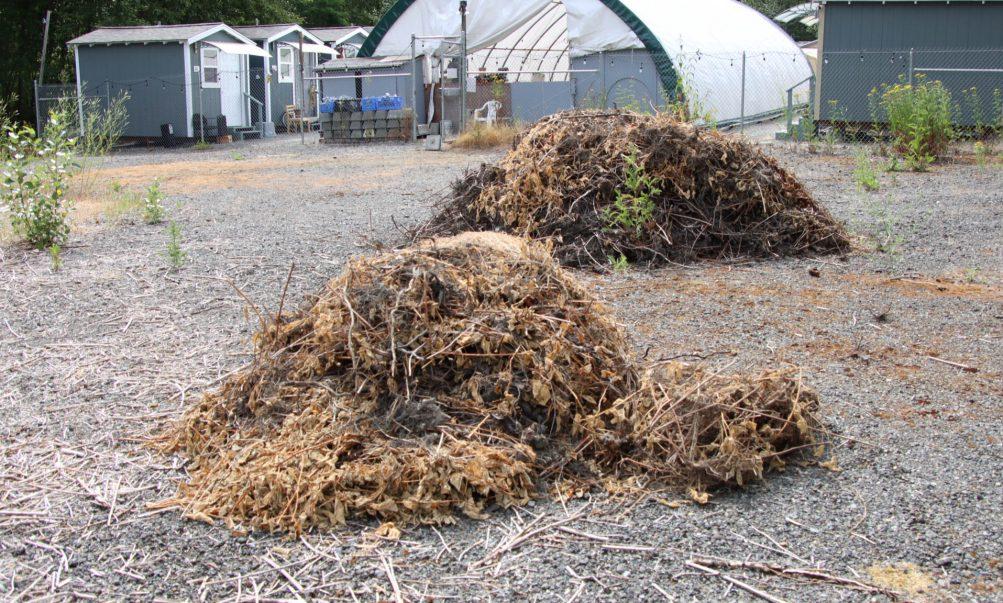Building Community Through Environmental Stewardship

A restored section of the Myers Way Wetlands.
Recently, Pacific Northwest Program Officer Timothy Bell visited a program site of the Washington-based group Weed Warriors, a longtime grantee and partner of the Rose Foundation. The organization’s mission is to inspire environmental stewardship by connecting people to nature through education, habitat restoration, and sustainable gardening programs. During the site visit, Grace, a Weed Warriors representative, showed Timothy the group’s Myers Way Wetlands restoration project, an environmental mitigation program that enlists help from and supports the neighboring tiny homes village called Camp Second Chance. The tour highlighted how the group turned a tricky social problem into a regenerative community solution.
The Myers Way Wetlands sits within the Myers Way Parcels — 30+ acres of city-owned land on the Southeast edge of West Seattle. The wetland is the start of Hamm Creek, an important salmon bearing stream, which empties into the Puget Sound via the Duwamish River. Unfortunately, years of neglect by the previous tenant caused the wetlands to fall into disarray. Before the arrival of Weed Warriors, derelict vehicles, illegally dumped garbage, and invasive weeds had degraded the Myers Way Wetlands, threatening the health and survival of down-stream species like salmon.
A neighboring land parcel is dedicated to a city-sanctioned tiny-house encampment of approximately 50 drug and alcohol-free homeless individuals, Camp Second Chance. Some residents arrive at Camp Second Chance utterly destitute, with only the clothes on their back and not a dime in their pocket. The camp provides these people with the fundamentals of stability – bedding and clothes, a safe place to sleep, basic sanitation and hygiene, and access to food. Working together as a team, the camp leadership, professional case managers, and volunteers from the community help people calm down from the constant crisis of life on the street so they can focus on solving the problems in their lives. As the only tiny home community in Seattle, Camp Second Chance has become a local success story for supporting individuals out of homelessness. Still, the camp faces a perception problem. Homeless individuals on the street who cannot get into Camp Second Chance detract from the image of a homeless camp that is well managed. And NIMBYs (Not in My Back Yard!) add to the negative dialogue surrounding homeless communities.
Rather than viewing Camp Second Chance as a roadblock, Weed Warriors saw an opportunity to combine environmental stewardship and environmental education. With a grant from the Puget Sound Keeper and the Rose Foundation, the group was able to launch their vision to work with Camp Second Chance to restore the Myers Way Wetlands.

Piles of removed weeds at the Myers Way Wetlands.
Alongside local volunteers and ally nonprofits, residents from Camp Second Chance work to protect and conserve the wetlands of Myers Way Parcels and restore the damage by invasive weed infestations. Since 2020, the group has received grants from the Rose Foundation to support its 3-phase project. So far, Weed Warriors has removed a football field worth of dense, impenetrable Himalayan blackberry thickets. The group mulches the blackberry canes to use on site as weed suppression to protect the soil from other invasive weeds. The workers have restored sections of the wetland with native plants, such as willow, that further enhance the quality of the wetland habitat. Together these efforts have restored water flow to the stream.
The program offers stipends to the camp residents, provides training on noxious weed removal techniques as a job skill, and supplies the necessary tools and protective gear. By participating in this project, the volunteers and the camp residents gain knowledge about the local environment and acquire work experience, increasing employment opportunities. Camp residents who consistently participate in the program receive letters of recommendation from Weed Warriors.
Beyond supporting the residents of Camp Second Chance, this project supports community development. By bringing together individuals of varied economic, social and racial backgrounds, the circles and life experience of all participants is broadened. Through a weed removal project in the Myers Way Wetlands, Weed Warriors has created an opportunity for individuals to meet someone they would otherwise never know.